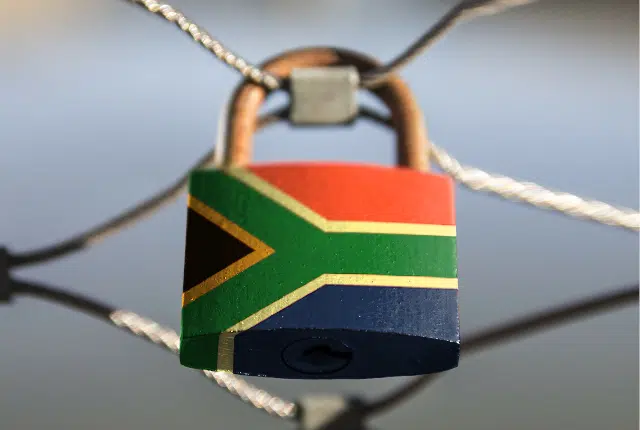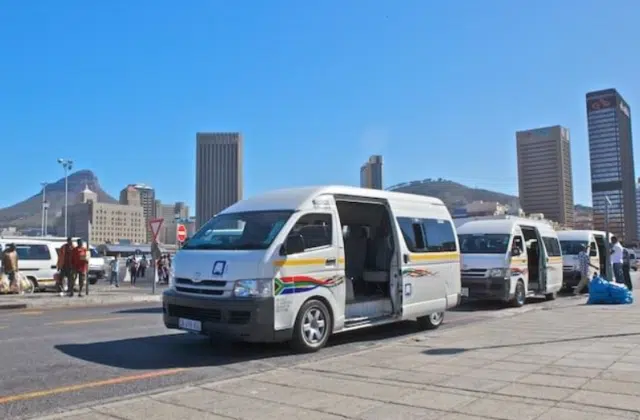
Here are all South Africa’s adjusted level 1 lockdown changes – including vaccine certificates
President Cyril Ramaphosa has announced that a number of South Africa’s lockdown regulations will be relaxed as the country moves to an adjusted level 1 lockdown from Friday (1 October).
In a national address on Thursday evening, the president said that the country is making progress in its fight against the coronavirus and that the country has now officially exited its third wave of Covid-19 infections.
The third wave, which lasted more than 130 days, saw a peak of around 20,000 new cases a day, the president said.
“In the last seven days, the average number of new cases was at around 1,800 a day. There are also sustained decreases in Covid-19 hospitalisations and deaths in all provinces. This is news that is welcome to all of us.
“Naturally, we all want to resume many of the activities that we have been unable to do for much of the past two years. We want to attend traditional rituals, birthday parties, weddings and other social functions freely with our friends and family.”
The president said that these freedoms are within the country’s reach, but will only be possible if all South Africans are vaccinated and continue to follow lockdown protocols.
As the cases decrease, he said that the country will move to lockdown level 1 on Friday, and that restrictions will be eased in the following areas:
- The hours of the curfew will now run from 00h00 – 04h00;
- Non-essential establishments will need to close by 23h00 to allow employees and patrons to return home before curfew;
- The number of people permitted to attend indoor gatherings will increase to 750 people, while up to 2,000 people may attend outdoor gatherings;
- Where the venue is too small to accommodate these numbers with appropriate social distancing, then no more than 50% of the capacity of the venue may be used.
- The sale of alcohol will be permitted according to the normal licensing provisions, but no alcohol may be sold over 23h00;
- The wearing of masks in public places remains mandatory.
President Ramaphosa said that the government is also considering the further relaxing of restrictions around sporting and cultural events, with an announcement set to be made at a later date.
Vaccination certificate
The president said that the government will also introduce vaccination certificates showing that a local resident has been vaccinated.
While no exact rollout date was given, Ramaphosa said that the certificate will be used to allow South Africans to attend certain activities.
“It can be used to facilitate travel, access to establishments and gatherings and other forms of activity that require proof of vaccination status. Our approach is informed by World Health Organisation guidelines and is in line with international best practices.
“Streamlining and standardising proof of vaccination will also go a long way towards getting a number of international travel restrictions both from and into our country eased.”
Vaccine drive
Over 8.6 million people are fully vaccinated, which is more than one-fifth of the adult population. Ramaphosa said that the government is now targeting a 70% adult vaccination rate by the end of the year.
“To reach our goal we need to administer an additional 16 million vaccine doses this year, which amounts to around 250,000 first dose vaccinations every single workday of every week until mid-December,” Ramaphosa said.
“While we have made important progress, and secured sufficient vaccine doses for the target population, our vaccination programme is still too slow.”
The government has therefore decided to upscale its vaccination campaign by launching the ‘Vooma Vaccination Weekends’ campaign from Friday (1 October). These events are specifically aimed at people who cannot get vaccinated during the week, he said.
“The Department of Health has identified priority districts in each province based on the no. of unvaccinated people and the current vaccination coverage in each district. This will be the first ‘Vooma Vaccination Weekend in a series of outreach programmes.”
“The vaccination is free to everyone living in South Africa, whether you are a South African citizen or from another country. You can go to a government or a private health facility that offers vaccinations, even if you don’t have medical aid.”
UK travel
The UK imposed a travel ban on South Africa by including it on a red list of travel destinations, effectively stymying tourism and trade with South Africa’s biggest source market.
Ramaphosa said that he held a call with UK prime minister Boris Johnson on Thursday and that a positive outcome is likely to be agreed upon in the coming days.
“We both agreed that decisions of this nature should be informed by science and are hopeful of a positive outcome when the issue comes up for review in the coming days.
“Our greatest priority now is to ensure that the economy recovers as quickly as possible so that we can create jobs and help businesses to get back on their feet.”
*First appeared in BusinessTech








